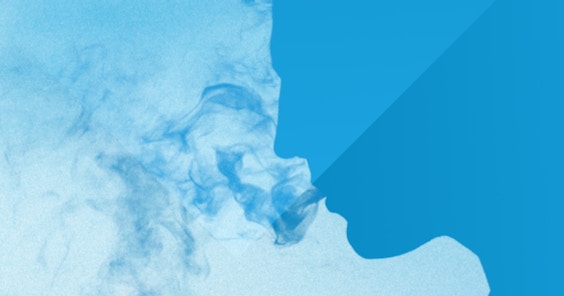I Am Sober is a free app that helps you get some control back in your life.

Meth and Sleep
Last Updated: Fri, January 19, 2024Meth is arguably one of the most dangerous and addictive drugs on the market. In the early 2000’s, crystal meth was considered an epidemic, so they cracked down on both users and suppliers. For over a decade after this, meth use decreased country-wide. However, in recent years, there has been a resurgence in meth use.
Today, meth is not only readily available, but also inexpensive. For such a dangerous drug, this combination can be lethal. It’s estimated that millions of Americans are active meth users. With so many people using the drug, it’s important to continue researching how meth affects the body.
How does meth affect my sleep?
Meth use can have a profound impact on someone’s sleep. This is because the use of meth releases a surge of chemicals known as dopamine and serotonin into the body. Dopamine is responsible for feelings of pleasure, motivation, and attention. This is why many people who are “high” on meth are able to stay awake for days at a time.
However, this surge of dopamine also has adverse effects. Because so much dopamine is released at once, the brain becomes unable to absorb the chemical easily on its own. The same goes for serotonin. For this reason, meth users can have poor sleep quality once they are finally able to fall asleep.
These are the most commonly negatively impacts sleep for meth users:
-
Insomnia: The chemicals released in the brain when someone uses meth keeps them awake. Those who use meth can stay awake for several days without feeling like their body needs rest, which can lead to insomnia.
-
Lack of REM sleep: Both serotonin and dopamine cannot be properly reabsorbed by the brain when someone uses meth. For this reason, the little sleep they get is very poor quality. Poor quality sleep means that the full sleep cycle, of which REM sleep is the final stage, cannot be achieved. Lack of REM sleep can cause several side effects including dehydration, lack of dreams, and anxiety.
How does meth affect the different levels of sleep
There are five stages of sleep:
-
stage 1
-
stage 2
-
stage 3
-
stage 4
-
and stage 5 (REM sleep)
Stages 1-4 are considered non-rapid eye movement sleep (NREM), whereas the fifth sleep stage, REM sleep, is where the body regenerates and dreams. During stages 1 and 2, sleep is relatively light, while sleep progressively becomes deeper in stages 3 and 4.
While it’s evident that meth has a significant impact on sleep, there is little research about how it specifically affects different levels of sleep.
However, some information is readily available. The surge of dopamine and serotonin, as well as noradrenaline, that are released when someone uses meth are directly responsible for affecting the first sleep stage from occurring.
When the mind is active and the body is surging with adrenaline, it’s nearly impossible to fall asleep. Then, when meth users do fall asleep, they oftentimes struggle to get restful sleep. When the first few stages of sleep are interrupted, REM sleep cannot take place.
How does meth affect my dreaming?
When someone uses meth regularly, it’s likely that they rarely dream. This is because meth use causes lack of REM sleep. Dreaming only occurs in the REM sleep phase where the body is in its deepest state of sleep. However, if the body never enters deep sleep, you cannot dream.
How does withdrawal from meth affect my sleep?
When you are “high” on meth, you likely feel like you don’t need any sleep- and you may not sleep often or well as a result! However, when you are going through meth withdrawal, you will likely feel extremely fatigued.
It’s common for those detoxing to experience something known as “hypersomnia” around the five day mark when you might sleep for 11+ hours per day for a few days. During this time, those recovering from meth might also experience vivid dreams. This happens because the body is finally able to enter REM sleep where dreaming occurs.
However, overall sleep quality doesn’t sustainably improve for a couple of months. Those detoxing may experience their worst sleep between their second and fourth weeks of sobriety.
When will my sleep quality start to improve in sobriety?
Those recovering from meth use will likely begin to notice that their sleep quality isn’t too bad after the first month. However, the majority will notice a marked improvement in their sleep quality around the two month mark.
What are ways I can improve my sleep?
Many meth users struggle with the way that both their use and their detox from the drug effects their sleep. In fact, the hypersomnia and vivid dreams can oftentimes lead people to relapse. While there is no way to ensure that those detoxing have perfect sleep quality, there are several ways to help them get better sleep.
While these tips may seem generic, they can help improve sleep quality slowly until sleep quality markedly improves in the second month of sobriety:
-
Cut out caffeine after 3pm. If this doesn’t help aid sleep, cut out caffeine entirely.
-
Eliminate screen time before bed
-
Stop napping
-
Go to bed and wake up at the same time every day
-
Take a melatonin supplement
-
Reduce alcohol consumption- especially before bed
-
Exercise regularly
-
Meditate
There’s no sugar-coating it- meth has a terrible impact on sleep. While meth can keep people up for days, this doesn’t mean that their bodies and brains don’t need sleep. It simply means that rush of chemicals like dopamine and serotonin trick the brain into thinking that rest is unnecessary.
This leads to problems like insomnia and poor sleep quality both while someone is using the drug and while they are detoxing. However, by the fourth month of sobriety, former meth users notice an improvement in sleep quality.
While getting sober isn’t easy, we guarantee that it’s worth it. At I Am Sober, we are passionate about helping people get sober from both drugs and alcohol. If you have any questions, don’t hesitate to contact us.
Resources:
I Am Sober is a free app that helps you get some control back in your life.




